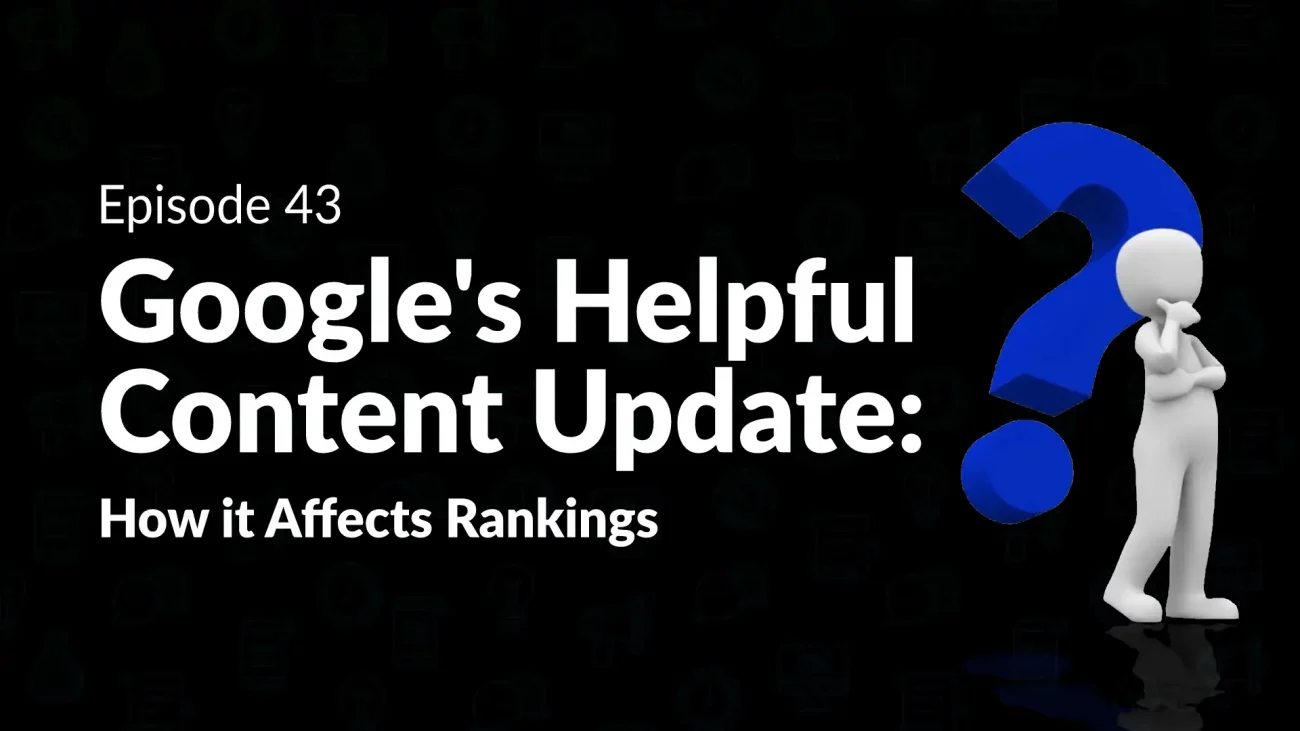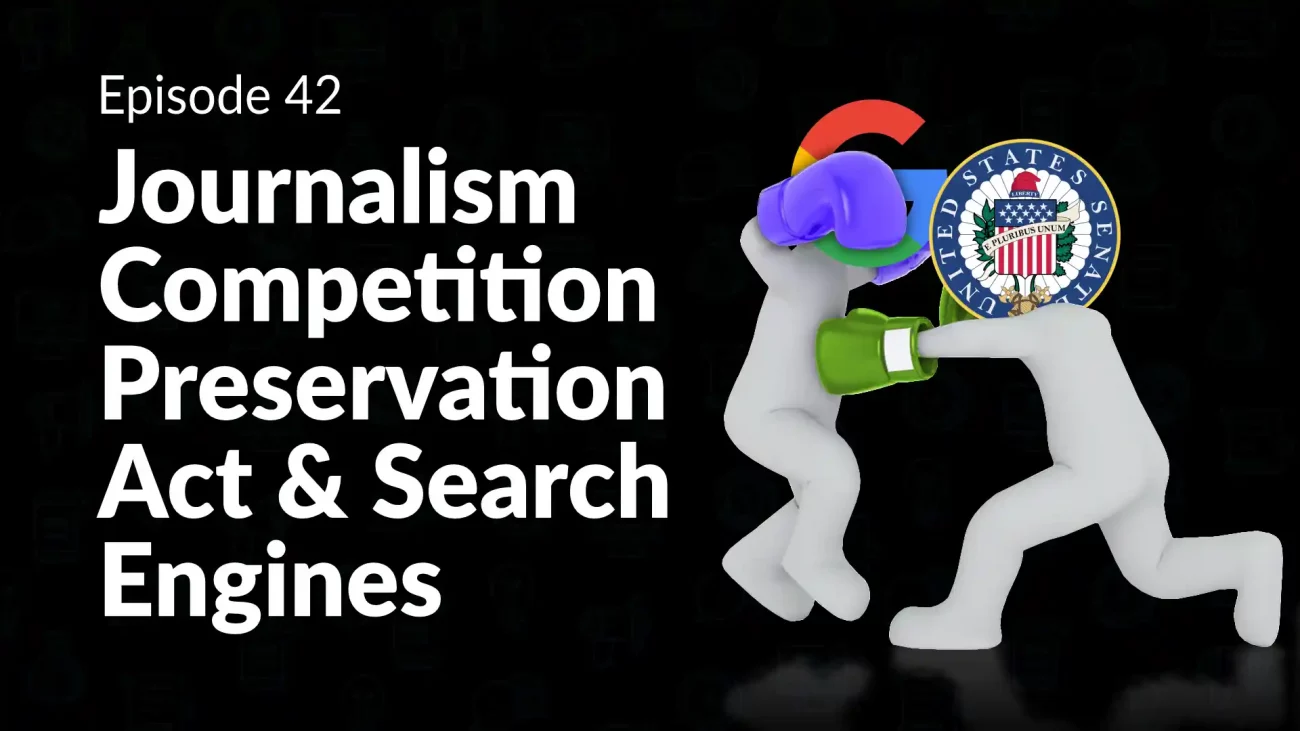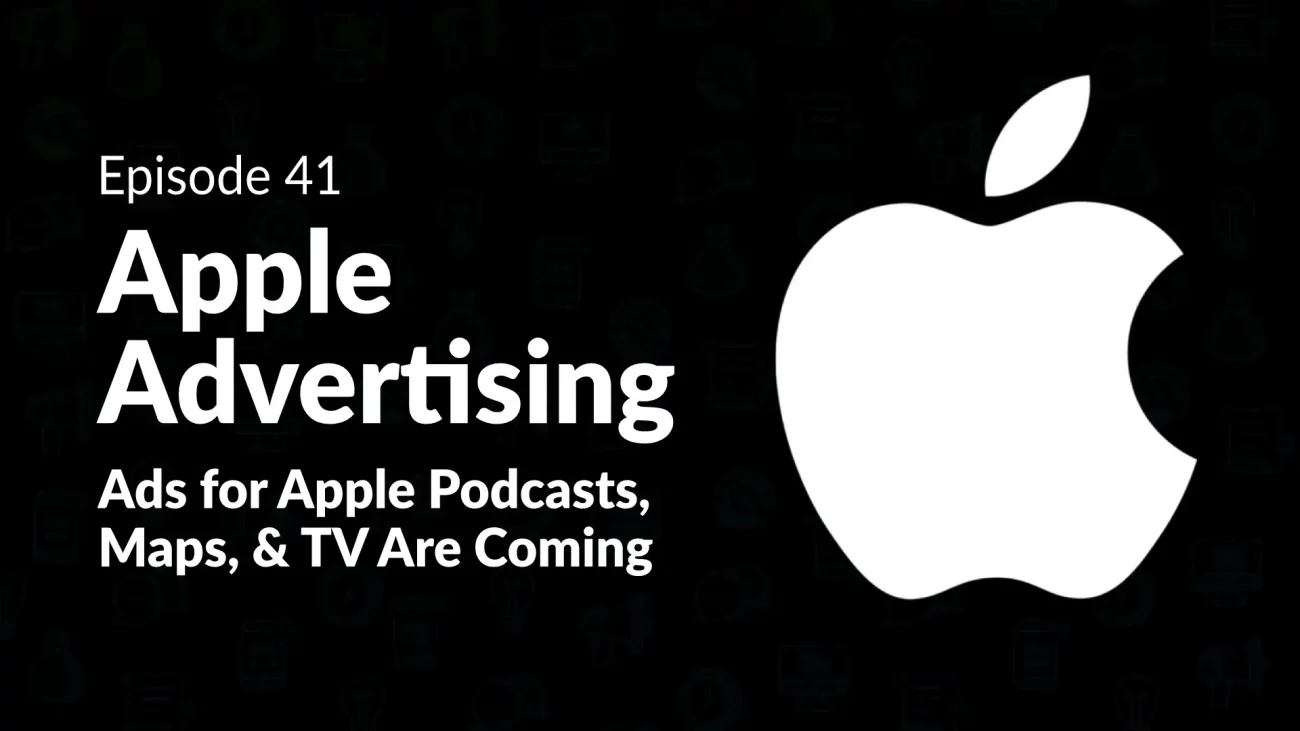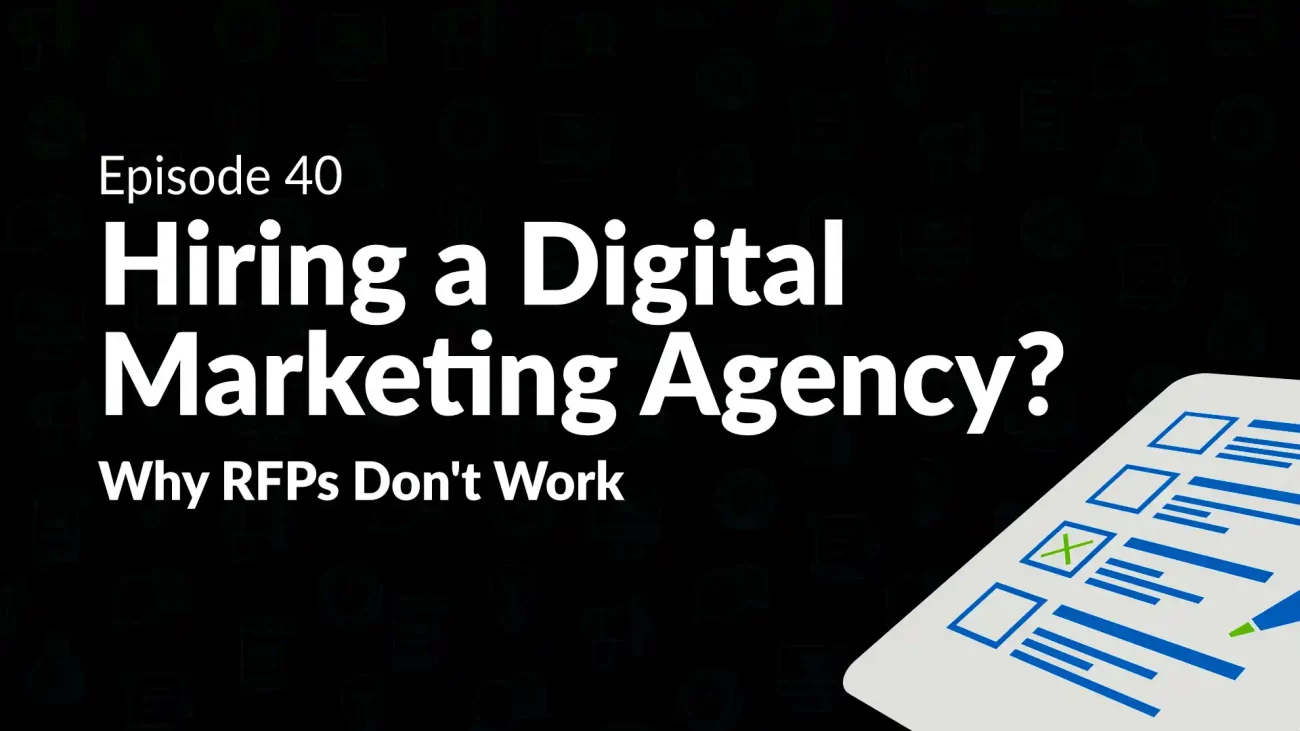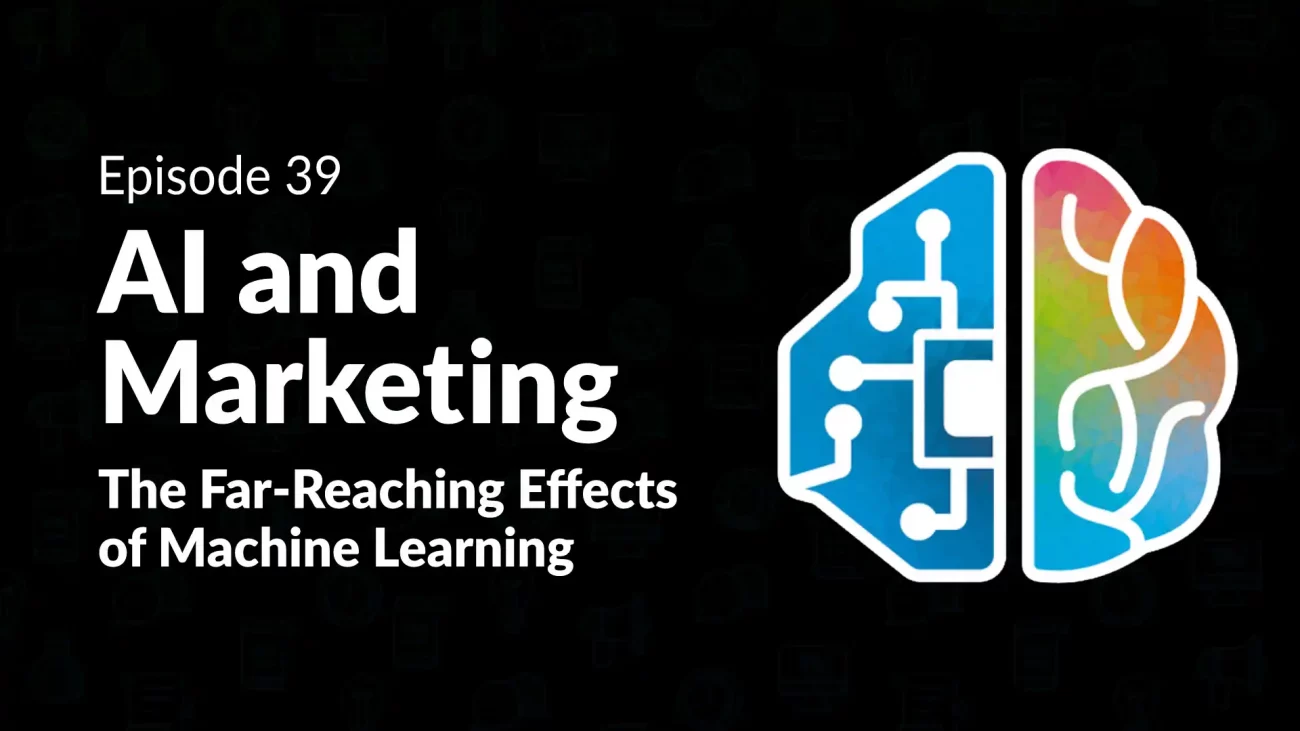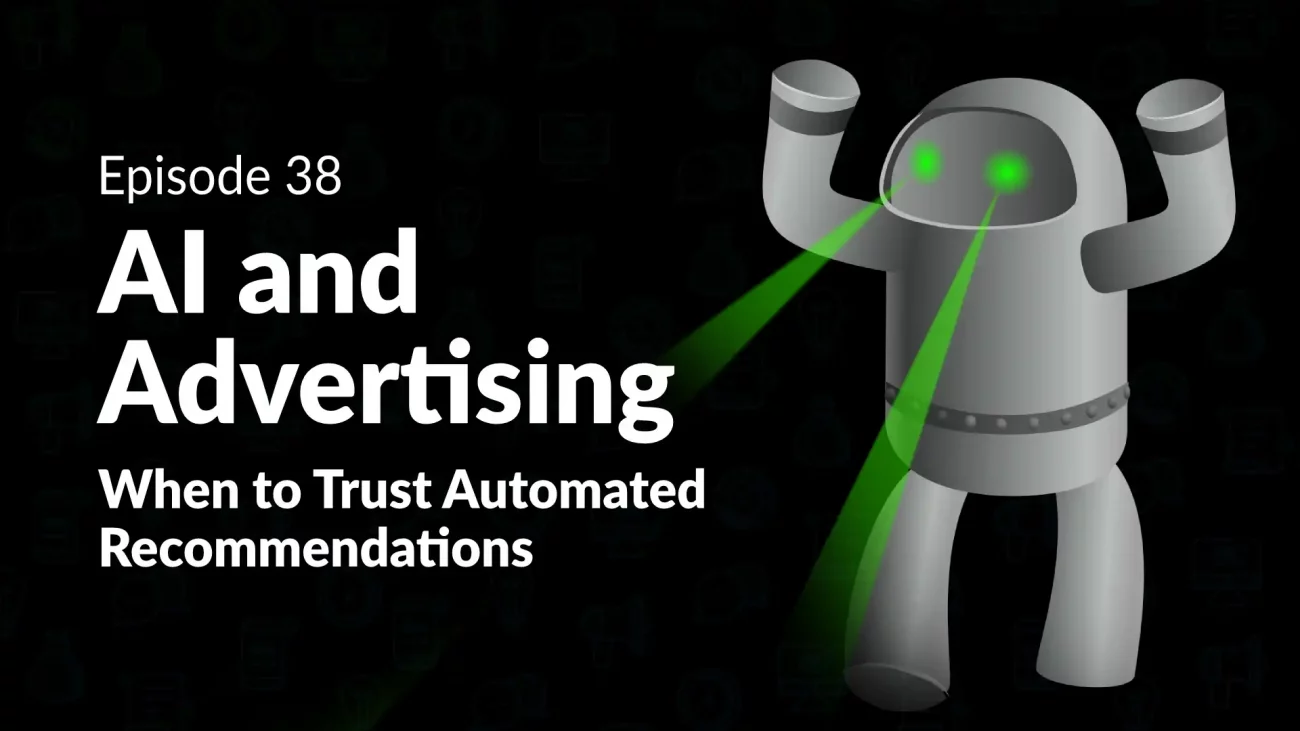Episode 12: Google’s Title Tag Recommendations
Is the advice from almost twenty years ago still as effective today after many changes to Google’s algorithm?
Transcription:
Devin:
You’re listening to Digital Marketing Mondays. Each week, we bring you new and exciting content from around the marketing industry and help give you, the marketer, insights into what’s happening. We’ll offer our advice and share some takeaways to help you develop better strategies for your marketing. Ideally, this will also help you improve your ROI as well. So with that, let’s tune into this week’s episode.
Hans:
Hey Devin. Nice to see you this morning. I think,
Devin:
Hey, there Hans.
Hans:
It’s nice to see your wife dressed you, as mine did me this morning. It turns out they’re like the [inaudible 00:00:41] twins here.
Devin:
Yeah. Yeah. They must have called each other and made sure we were wearing the same thing today. So that’s pretty funny.
Hans:
Yeah. So our topic this morning is about title tags and there’s some news from Google that I want to mention, but first, a quick review here. As the older guy here, I’m the historian of the company to some degree. I was doing SEO before it was even called SEO. We were just worried about showing up on Yahoo because Google didn’t exist yet.
Devin:
What’s Yahoo?
Hans:
Yahoo. Yeah. That’s how old I am. But title tags have always been a very, very important topic for doing SEO. To me, it’s sort of like a primary, it’s like the first place you look and that’s for a couple of reasons. The thinking has always been that as ranking signals go, putting a keyword in your title tag or two keywords, that’s like the best place to put it because it’s sort of telling Google what your website is about. So if you want to rank for that keyword, the best place to put it is right in your home page title tag.
Hans:
Secondly, Google has traditionally, if you look at the search results you want click through rates. It’s like writing an ad, right? So you want your search result listing, your organic listing to be attractive to people so they will click on it. And so the nice thing has been that you could write a title tag and Google was almost 100% of the time would take that title tag verbatim and use it as the headline on your organic listing for when your page did show up on the organic listings. And then of course the meta description tag was used to write the copy, the body copy that goes below the headline.
Hans:
And so therefore you’d be kind of like the same as writing a Google ad and you’d have the liberty to kind of craft it the way you want it. Now, Google was less, I guess, reliable about utilizing the description tag verbatim, but for the headline, they almost always used the title tag. And now we hear news that Google’s going to change all of this. So that’s what we’re going to talk about today. What is coming and what does it mean to people who care about what kind of keywords they rank for and wanting their organic listings to look clickable to people and draw a high click through rate. So what’s the upshot of this? Can you tell us?
Devin:
Yeah. And actually this is something Google has already been experimenting now at the time of this recording, have been experimenting with for a couple months, at least, but what’s happening is that Google in their infinite AI wisdom is assuming whatever the page content is and then rewriting title tags accordingly. There’s a lot of SEOs that bow at the altar of John Mueller, who’s Google’s King Pumba of all things search, right? So I think a lot of people looked at what he says. And recently it was brought up or discussed with a little more detail from John Mueller about just the title tag rewriting, what the thought process was behind it, and what SEO should be focused on.
Devin:
And I think historically, SEOs have really been all right, you pick your primary keyword. Maybe you have a secondary keyword on a page. You write the page title in such a way to make sure both of those keywords are included and then a pipe or a separator of some type and then the brand name. And that’s,
Hans:
There you go.
Devin:
Historically, how you kind of optimize pages.
Hans:
Yep.
Devin:
What John Mueller recently was talking about is that Google based on their algorithm and the information in the Google search, one of the options that you have is people also ask, right? And then it has questions that are relevant or seemingly related. Google and their algorithm, took some of that information to help imply about what searchers were actually looking for the first time. And so they’ve been using that data that they’ve been collecting to effectively help better understand and serve results higher up the first time.
Devin:
And so as part of that process, what Google is now also doing is they are taking their understanding of the page topic and just what the page is about and then they are rewriting a title in such a way that if it is truly the best content, making some minor adjustments to the titles to see if the person actually searching will then end up clicking on the result or getting the answer that they need. So it’s really fascinating. I mean, there’s certainly, I think there’s a lot of art to this. It doesn’t seem like it’s particularly a science anymore. Back in the day for Google search, it was yeah, just pick your keyword, put it right in the page title and boom, you’re going to rank for it. Right. And it’s that simple. And obviously you need to have it in the content as well.
Hans:
Well, you have all your phrase around it typically, you know what I mean?
Devin:
Right. Sure. Sure. [crosstalk 00:05:40] And you had to make sure there was a certain density involved, but effectively, that was the way that you would get ranked. Now, there’s a lot more focus and emphasis on making sure that the content is understood and that it generally has a kind of central tenet or theme to that particular content on the page and making sure that Google does understand it. So yes, the use of keywords is still highly relevant, but I think what Google is attempting to do here is to try and better serve the content based on the intent of the searcher and test their clout for rewriting titles to see how effective it could be.
Hans:
So what should people do? Should people still write title tags? I mean, do we still,
Devin:
Of course.
Hans:
Want to write a title tag and put a keyword in it and things like that? Or should we just throw up our hands and just say “home,” like you see some unoptimized sites that say “home” on the title tag.
Devin:
Yeah. Yeah. According to John Mueller, the general recommendation is write page titles based on what the content of the page is about.
Hans:
Okay.
Devin:
So that would certainly imply that there still needs to be thoughtful page titles that are put together. It does also imply that an SEO-centric keyword strategy of put your primary keyword here and then maybe even a hyphen, and then a secondary keyword, and then your separator, and your brand name. That method seems to be a little bit antiquated at this point, at least according to Google. So I do think, certainly, and again, we’re bowing at the altar of John Mueller. So it feels like we kind of have to head in that direction, but certainly just writing with keywords included or not right, writing what the page content is about and doing it in a thoughtful way, I think is certainly still the best approach here. And yes, I would generally lean towards making sure that your primary target keyword is included in the page title.
Hans:
Okay. Well, let me throw you a curve ball. So I’ve,
Devin:
Sure.
Hans:
Seen some websites where the homepage is mostly graphics and the homepage is more of a launching pad into the interior of the site. So there’s not a whole lot of copy on the homepage that describes what the website is about or what the business is about. That kind of thing. It’s really just sort of a pick who you are, pick what you’re interested in, and then dive down this rabbit hole. If Google is kind of parsing the content of the page, presumably they’re also parsing the whole content of the site, has it maybe put a little more emphasis on creating at least some content then on the page that Google’s crawlers can go in there and parse and figure out what the site’s about?
Devin:
That’s a good question. It’s a little tricky to answer that I think, because there is some context based on how the actual site or the page, that particular homepage is built as an example. What’s also, I guess a thing to keep in mind is a lot of folks are not typically hitting the homepage or the website upon a Google search if you’re looking for something specific,
Hans:
True.
Devin:
With the exception of brand terms, right. So if I type in marketvantage.com, assumably we’re most likely to hit the homepage because that’s where they can learn most about us right away. Right.
Hans:
Right.
Devin:
And Google knows that.
Hans:
Okay.
Devin:
So I think it does contextually depend on what the actual search is.
Hans:
Got it.
Devin:
And this is where I think Google will continue to refine their algorithm over certainly the many coming years and try and just optimize for serving the best page and the best content based on the search. So if you have a homepage that’s divided up for, are you a doctor, or a lawyer, or an astronaut, right? And then you go about from there. Certainly if Google has some contextual information about me knowing that I’m an astronaut and I’m trying to find out these astronautical things, it could try and direct me in the right direction before I even hit the homepage in theory and choose my own adventure.
Hans:
Personalization, which is really nothing new here to really talk about. So is this rolled out already or is this coming or is it building over time? Usually Google sort of launches this stuff like not all at once, but over a period of time. Is that kind of what you were expecting to see here?
Devin:
Yeah. So in terms of the title tags, they are definitely rewriting them currently. To what extent is kind of unclear. There’s a lot of tools out there that are having a hard time tracking some of this performance other than SEOs are doing a lot of manual reviews and then capturing screenshots showing that there are title tags that are being rewritten by Google, but it’s not entirely clear at this point how often or how prevalent this title tag rewrite is. At this moment in time, there is no direct method to be able to completely 100% control the title tag.
Devin:
In some instances, for page content or things, you can write specific lines of code in the HTML that says, certainly don’t follow, don’t index, but keep this content as is. And in this case for the title tag, there’s currently no work around, so Google will choose to rewrite the title as they see fit. So there’s not much of that we could do at this point, other than, if you’re thinking about SEO for your website, be considering rewriting the page titles anyways, from the perspective of keeping it focused in terms of your keyword and making sure that it clearly conveys what the page content is about.
Hans:
Okay. All right. All right. Well, I think that’s what we know and it sounds like good advice anyway. And great. Well, thanks a lot, Devin. I think that’s really informative.
Devin:
Yeah. Thank you. Have a great day, everybody. Thank you. Thank you so much for tuning in. We really appreciate you taking the time out of your busy day to engage with our content. Whether you’re watching on YouTube or subscribed on our podcast apps, we appreciate you taking the time. Make sure to leave a comment down below and let us know any feedback that you have for us. We’re always watching the comments and engaging in any way that we can. So if you find this content useful, also make sure to subscribe or give it a big thumbs up. We appreciate it. Thanks so much.




